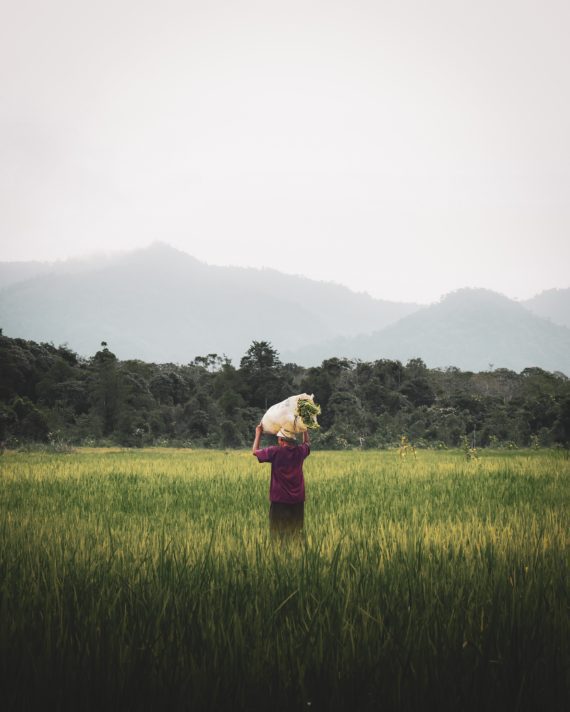Editor’s note: This Lent season, Bread Blog is running a series of devotionals written by staff, alumni, and friends of the San Francisco Theological Seminary, which is affiliated with the Presbyterian Church (U.S.A).
Psalm 22
By Kim Min-Hee
It was not easy to look through each verse at once, while reading Psalm 22, because I could not come into the text without bringing up my personal suffering memory. It was too heavy to hold the suffering voice from the text, in addition to my own. Reminding me of my personal time of lament, the text led me to ponder the process of transformation, until I could identify my body as a space of intersectionality for justice, diversity, equality, and liberation in God. Assured that my body has mourned deeply alone but also now together with others for a while, I came to listen more carefully to other bodies’ mourning, by interconnecting many suffering voices into my body.
My body, living in a post-colonial time and space, hears a woman’s mourning at the ways her body has not been protected in her father’s hand, in her community, in her country’s sovereignty, and even, in the past, in her God. I hear her lament in Psalm 22 that gives voice to suffering by offering powerful poetic imagery to describe her suffering.
She laments, “I am a worm and not a human being, scorned by men despised by the people, all who see me mock me; they hurl insults, shaking their heads.”(vv. 6-7)
The Korean Comfort Woman’s body was a war supply used to give soldiers “comfort” from her body during the Japanese colonial time. The comfort-woman system was devised as a militarized sexual-slavery system, and then, became a diplomatic deal as a final “irreversible” conspiracy between the countries in post-colonial time.
I hear her.
For some, the first cries are the first word that brought up this suffering in silence to the surface for the world to hear. Through such individual’s lament, many voices suffering in silence were brought into the presence of the entire community. The communal lament creates a place to hope to be able to meet God where it feels like God has been absent. It builds on and moves beyond one’s unbearable suffering place in community by providing a context in which individuals can understand the difficult times of their lives together.
I see the final and irreversible promise of God for the future with the psalmist together. “They will proclaim Her righteousness to a people yet unborn for She has done it.”(v.31)
Kim Min-Hee is a master of divinity graduate from the San Francisco Theological Seminary.



